Boris Johnson learns how to fight pirates during training exercise in Nigeria
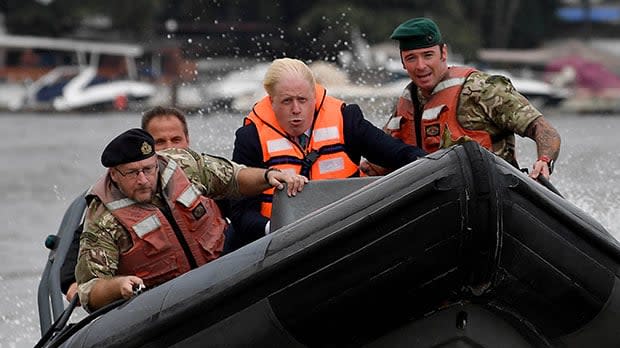
Foreign Secretary Boris Johnson took to the high seas on Thursday during a visit to Nigeria which saw him learn about some of the pirate-fighting techniques the British Navy are teaching their Nigerian counterparts.
During the visit, Mr Johnson piloted a rib with the British Navy who are based in Lagos, Nigeria and got his hands on a water cannon onboard a Nigerian Naval warship.
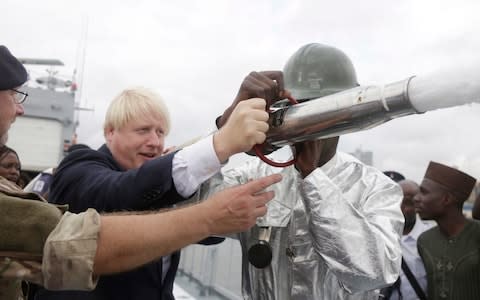
More than 120 pirate attacks were reported in the Gulf of Guinea last year, costing around £619 million.
The gulf is targeted because more than £6 billion of west African trade with the UK, and around 15% of oil imported to Britain, moves through the area annually.
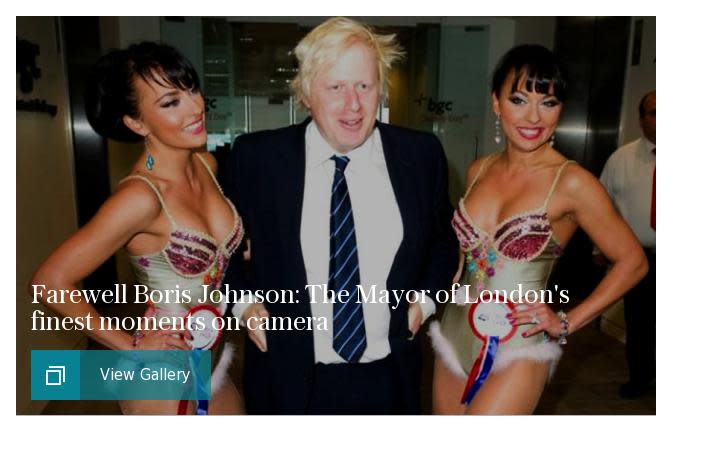
Afterwards, the Foreign Secretary paid a visit to a Guinness factory where he was treated to a sip of the stout.
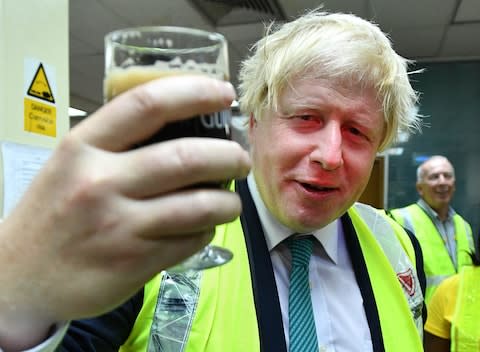
Mr Johnson, on a joint visit to the country with International Development Secretary Priti Patel, has called for a major boost in trade with Nigeria during a visit to the west African country.
Meanwhile in Japan, Prime Minister Theresa May was granted an audience with Emperor Akihito on the last day of her visit.
After two days of talks on trade and security with Japanese counterpart Shinzo Abe, the Prime Minister steered clear of hard politics in the final hours of the trip.
At the Imperial Palace in Tokyo, Mrs May spent 20 minutes in private talks with Japan's symbolic figurehead, who is expected to abdicate following ill health in the coming months.
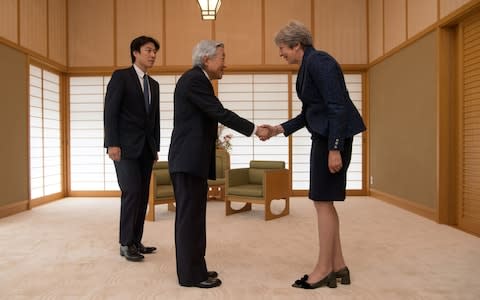
The Prime Minister later headed off to watch a game of wheelchair basketball between Great Britain and Australia being held as part of the world challenge cup before meeting business leaders at an embassy reception.
Downing Street sources said the visit to Japan had been "highly successful" after Mrs May and Mr Abe agreed to boost defence links.
The Japanese premier's decision to say he had faith in the future of the British economy after Brexit also "particularly pleased" No 10.
The source said there had always been a close and friendly relationship between the UK and Japan but it has "gone up a level" after the visit.
Mr Abe told reporters the Prime Minister had been forceful in her reassurance about the Brexit process - a sign of Mrs May's upbeat, confident approach, according to the source.
Mrs May spent the first two days of the visit in a series of meetings and visits with Mr Abe in Kyoto and Japan.
But she sparked a wave of criticism back in the UK after telling reporters she was "not a quitter" and planned to lead the Conservative party into 2022 general election.

